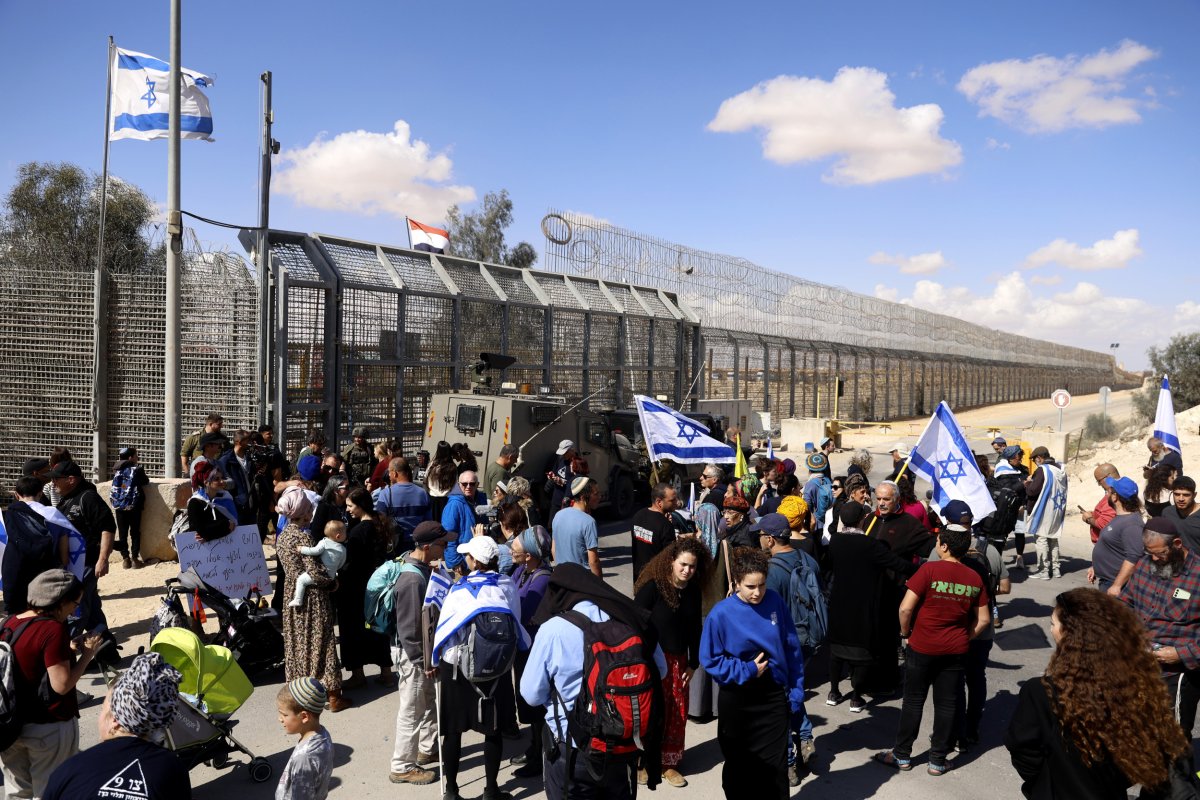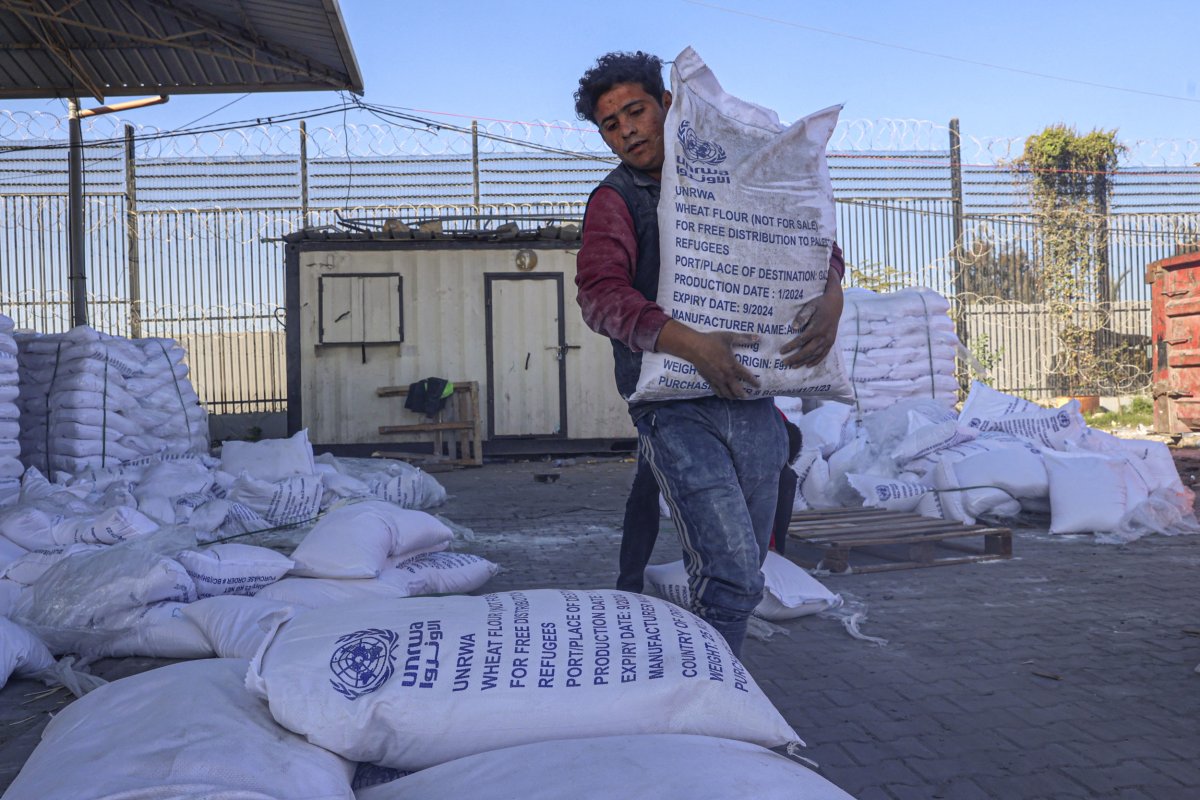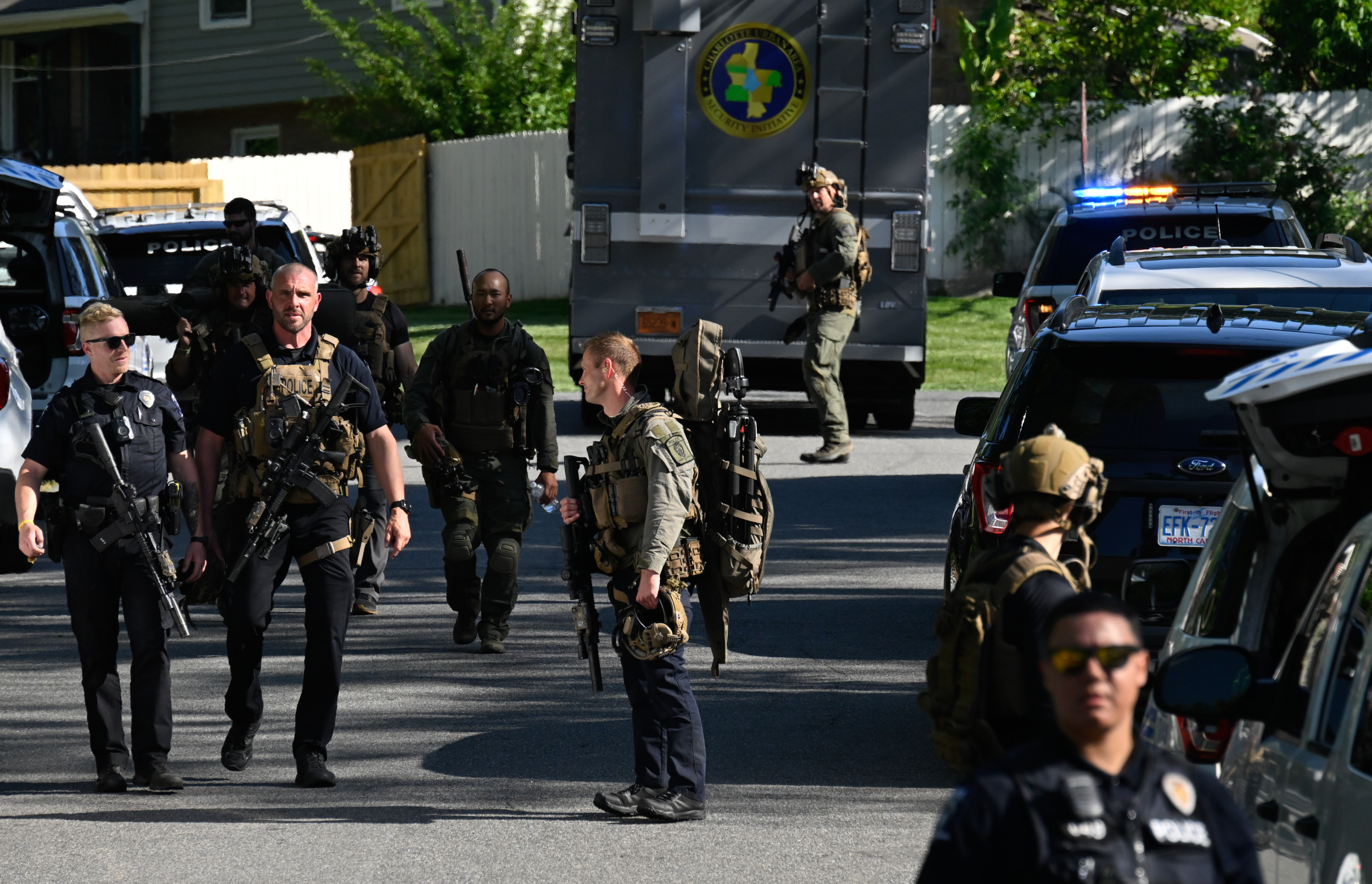United Nations workers are calling on Israel to establish law and order on both sides of the border in southern Gaza as protesters and looters have hindered the delivery of crucial humanitarian aid.
Meanwhile, Israeli officials have accused the U.N. and other international organizations of failing to live up to their own responsibilities in ensuring crucial assistance reaches those in need amid the ongoing war.
As international concerns mount over the level of relief amid the crisis surrounding the conflict, Jonathan Fowler, spokesperson for the U.N. Relief and Works Agency for the Palestine Refugees in the Near East (UNRWA), told Newsweek that the situations at the Kerem Shalom, also known as Karem Abu Salem, crossing between Israel and Gaza and the Rafah crossing between Egypt and Gaza have been "unpredictable."
On the Israeli side of the Israel-Gaza border, Fowler said, "Israeli protestors stood in the way to stop trucks getting across," leading to closures from February 8 to February 10 and also from February 15 to February 17. The Israel-Egypt crossing, according to Fowler, has also "been closed intermittently, and flows of supplies have been low on the days when it has been open this month."
"The breakdown of law and order is also due to the humanitarian crisis," he said. "In most cases, when food does get taken directly from convoys, it's because of utter desperation, with people even eating it on the spot."
"After four months of war and siege, people across the Gaza Strip," he added, "the majority being women and children, depend on aid for their sheer survival in the face of looming famine."
Citing the recent order issued last month by the U.N.'s top court, the International Court of Justice, Fowler asserted that "the Israeli forces have a responsibility to enable humanitarian operations across Gaza by ensuring safety, facilitating access to all areas in need, including the north, preserving law and order and allowing basic operating requirements of humanitarians like communications equipment."

The remarks came one day after Colonel Moshe Tetro, head of the Israel Defense Forces (IDF) Coordination and Liaison Administration for Gaza, alleged that the U.N. had been absent in its role in delivering assistance.
Speaking to reporters during a press call Tuesday, Tetro had asserted that up to 450 trucks filled with goods had accumulated on the Palestinian side of the Kerem Shalom/Karem Abu Salem crossing and were "waiting for the international community organizations to take the goods to be distributed inside Gaza."
"We are ready and willing to facilitate the entrance of tens, if not hundreds, of trucks every day, but the Palestinian side of Kerem Shalom is fully loaded," Tetro said. "Unfortunately, today and yesterday, the U.N. didn't show up to work."
Fowler, for his part, asserted that "UNRWA continues to be present at the crossings every day," and that its personnel "are engaging with all actors to find solutions to improve and increase the flow of humanitarian supplies into Gaza and to scale it up to truly respond to the acute needs."
Responding to Newsweek's question at the time regarding the IDF's responsibility and ensure aid was delivered and distributed in Gaza, Tetro argued that "there are a lot of stakeholders and organizations that have responsibility" for the current situation plaguing the territory, including Hamas, which he compared to the Islamic State militant group (ISIS).
"The first one that is responsible about the situation in Gaza is ISIS-Hamas and we should not forget it," Tetro said. "They took a decision to launch a terrorist brutal attack against the State of Israel and they are the first one to be accountable and responsible over the situation in Gaza."
"The IDF does everything in our power to facilitate the entrance of humanitarian aid and to facilitate the conditions that this humanitarian aid will reach the people in Gaza," he added. "We are not doing that alone and there are a lot of other organizations that are relevant to this issue."
Tetro did acknowledge that international organizations attempting to deliver the assistance "are facing some challenges" in light of reports of scenes of chaos consuming aid convoys, but pointed to Hamas' own civil security force, known as the "blue police," as one of the parties also responsible for maintaining law and order.

The IDF has escalated operations in southern Gaza as part of the military offensive launched in response to the Hamas-led surprise attack against Israel on October 7. Around half of Gaza's 2.2 million people are believed to have fled to the south since Israel called for evacuations from the north in the lead-up to expanding IDF ground operations there in the early stages of the conflict.
Security concerns have also hindered the delivery of aid in northern Gaza.
"Getting supplies to people in need across the Gaza Strip is also extremely difficult," Fowler told Newsweek. "Between 1 January and 12 February, out of 77 planned missions to deliver aid to the north of Wadi Gaza or assess the situation there, half were denied, and just 12 were facilitated by the Israeli authorities."
"UNRWA has been unable to deliver food to the north since 23 January," he added.
On Tuesday, the U.N.'s World Food Program (WFP) announced that it was "pausing deliveries of life-saving food aid to northern Gaza until conditions are in place that allow for safe distributions." In its statement, the WFP also noted scenes of looting, as well as "complete chaos and violence due to the collapse of civil order" when convoys attempted to deliver aid after a three-week suspension of operations.
The WFP had previously paused its operations amid previous concerns over what it called "the absence of a functioning humanitarian notification system by U.N. officials" as well as an incident earlier this month in which a UNRWA truck was struck by what the U.N. agency identified as Israeli naval fire.
In a statement issued Wednesday, Hamas referred to the new WFP pause as "a dangerous development that will double the human suffering of our Palestinian people in the Gaza and northern governorates under the stifling siege of the criminal Zionist occupation army, and an acknowledgment of the reality imposed by the Nazi enemy on our people, aiming to starve and exterminate them."
The group called on all U.N. agencies, including the WFP and UNRWA, "to put pressure on the occupation, by announcing a return to work in the northern Gaza Strip in accordance with their international mandates to relieve our people from the dangerously increasing threat of famine, in compliance with their legal and humanitarian responsibilities."
Hamas also appealed to Arab and Muslim nations "to take urgent and effective action to break the siege and relieve our Palestinian people from the threat of famine and extermination," as well as to adopt a stronger stance against Israel and exert greater pressure on the international community to push Israel "to respect the minimum rules of international humanitarian law by not obstructing the access of relief materials and medicines to defenseless children and civilians in the Gaza Strip."
Uncommon Knowledge
Newsweek is committed to challenging conventional wisdom and finding connections in the search for common ground.
Newsweek is committed to challenging conventional wisdom and finding connections in the search for common ground.
About the writer
Based in his hometown of Staten Island, New York City, Tom O'Connor is an award-winning Senior Writer of Foreign Policy ... Read more
To read how Newsweek uses AI as a newsroom tool, Click here.








